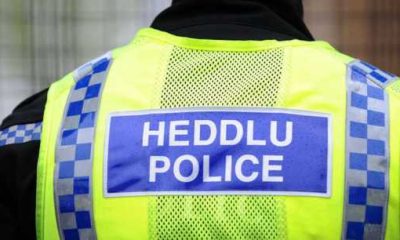featured
Wales to reduce speed limit to 20mph in built-up areas from Sunday
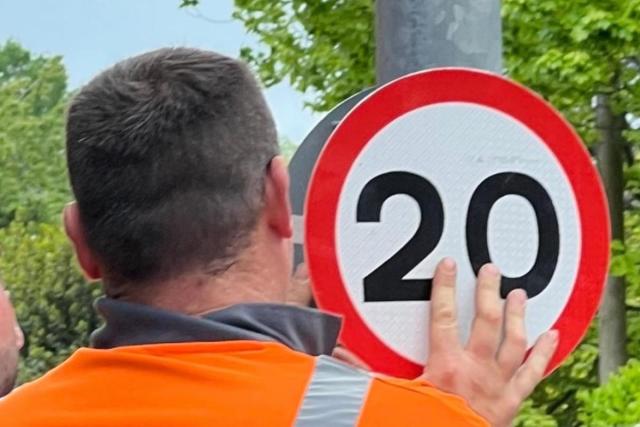
WALES will introduce a new default speed limit of 20mph (32km/h) for residential roads from Sunday, making it the first UK nation to make such a change. This follows Spain, which has already adjusted its national speed limits in 2019. However, drivers are being urged not to rely solely on their satellite navigation systems for the speed limit updates, as some GPS firms have indicated that immediate updates might not be possible.
What This Means for Drivers
The new law will affect around 35% of Welsh roads with lamp-posts no more than 200 yards (183m) apart. Notably, since this will be the national speed limit, 20mph signs will be unnecessary on those roads unless the limit changes. But while police have noted that enforcing the new speed will be a “last resort” in the early stages, fixed speed cameras will not show such leniency.
Simon Williams, of the RAC, advised drivers to stay updated. “Until sat-nav systems have been fully updated, they shouldn’t rely on them to know what the speed limit is on any particular stretch of Welsh road,” he stated.
Political Reactions
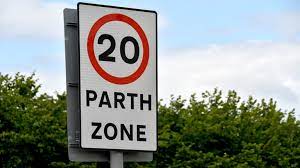
The speed limit change has spurred varied responses from politicians. House of Commons leader Penny Mordaunt criticised the move, terming it “insane”. Mordaunt suggested that the Labour party was punishing motorists. However, Lee Waters, the deputy climate change minister for Wales, described Mordaunt’s comments as a “pantomime”.
Economic and Safety Implications
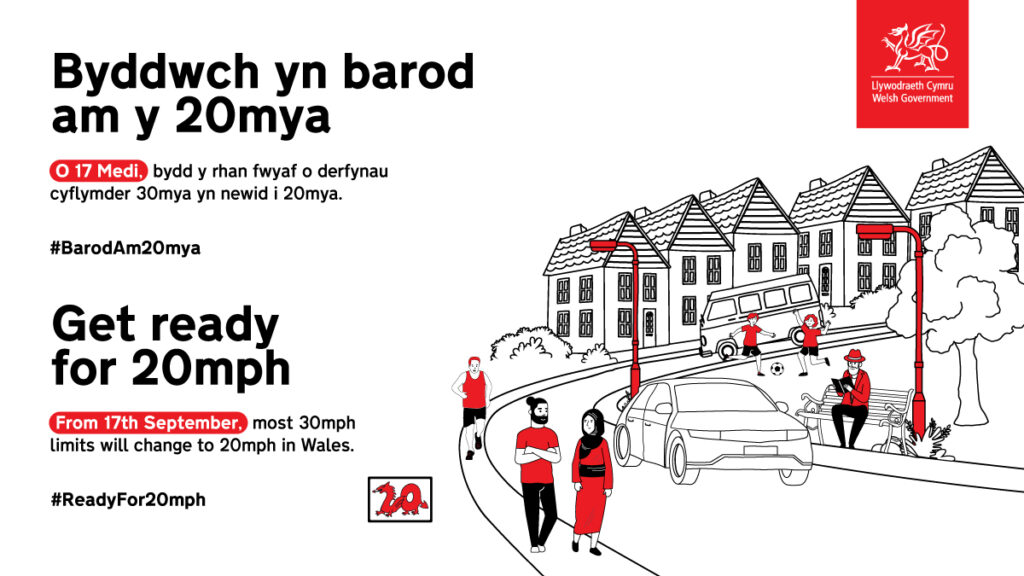
First Minister Mark Drakeford highlighted the safety benefits, stating that while it may take an extra minute for journeys, the change could save ten lives in Wales each year. However, the Welsh Conservatives have drawn attention to Welsh government documents which estimate that the speed change could cost the Welsh economy between £2.7b and £8.9b due to increased journey times. Yet, Mr Drakeford counters that the NHS could see savings of £92m annually.
Historically, more people were severely injured or killed in 30mph zones in Wales than in any other zones. Safety campaigners, Brake, have emphasised that the risk of fatality is five times higher at 30mph compared to 20mph.
Which Roads Will Change?
Of the 22,000 miles of road in Wales, an estimated 7,700 miles will change from 30mph to 20mph. About 30,000 road signs are set to be replaced.
However, not all 30mph roads will experience this reduction. Local authorities have the discretion to maintain the 30mph speed limit where they can provide evidence that such speeds are safe and won’t endanger pedestrians and cyclists.
Controversial Change?
The speed limit adjustment has seen its share of controversy. A majority of respondents to a Welsh government-commissioned consultation were against the change. Furthermore, the Welsh Conservatives have voiced strong opposition.
Mark Drakeford admitted the change would require adjustment, likening it to the introduction of the breathalyser. He expressed hope that, over time, the community would see the benefits of the reduced speed in terms of safety.
As Wales moves forward with this landmark change, it remains to be seen how smoothly the transition will be and what the long-term impacts, both positive and negative, will be.
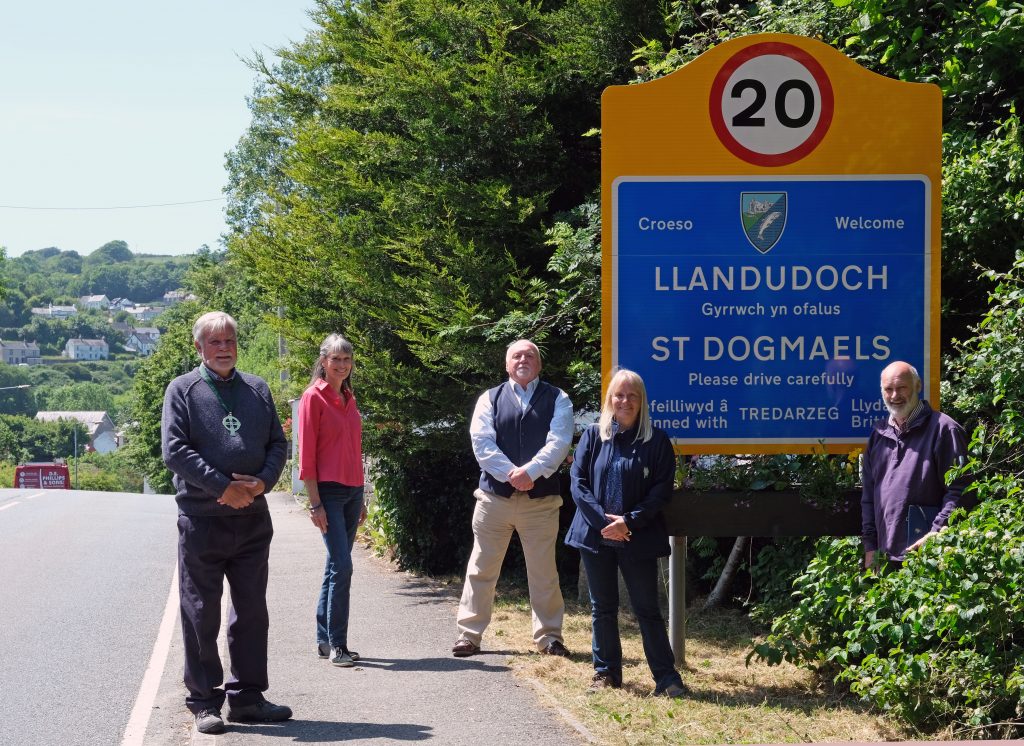
featured
Welsh Government under fire over NHS escalation levels

THE WELSH GOVERNMENT has maintained the escalation statuses of NHS trusts, special health authorities (SHAs), and health boards in Wales amid ongoing financial, operational, and staffing pressures. Eluned Morgan MS, Cabinet Secretary for Health and Social Care, announced the decision today, emphasising that the challenges faced by these bodies are not unique to Wales.
The current statuses indicate varying levels of intervention and monitoring. Notably, Betsi Cadwaladr University Health Board remains at Level 5, denoting special measures, while several other boards are under enhanced monitoring or targeted intervention.
In response, Sam Rowlands MS, Welsh Conservative Shadow Health Minister, criticised the decision, accusing the Labour Welsh Government of failing to make any progress. He highlighted that all health boards remain escalated to at least Level 3 and questioned the Level 1 status of the Welsh Ambulance Services University NHS Trust, given that less than half of red ambulance calls are reached within the target time.
Rowlands reiterated the Welsh Conservatives’ call for a comprehensive workforce plan and full allocation of health spending to address these issues.
The Welsh Government today announced no changes to the current escalation statuses of NHS trusts and health boards across Wales, despite significant pressures. Eluned Morgan MS, the Health Secretary, stated that these bodies are still grappling with financial and operational challenges, which are not unique to Wales.
NHS Escalation Statuses:
- Aneurin Bevan UHB: Level 4 for finance, strategy, and planning; Level 3 for urgent care at Grange University Hospital
- Betsi Cadwaladr UHB: Level 5, special measures
- Cardiff and Vale UHB: Level 3, enhanced monitoring
- Cwm Taf Morgannwg UHB: Level 4 for performance; Level 3 for finance
- Hywel Dda UHB: Level 4, targeted intervention
- Powys Teaching HB: Level 3, enhanced monitoring
- Swansea Bay UHB: Level 4 for performance; Level 3 for finance, maternity, and neonatal services
- Public Health Wales, Velindre, Welsh Ambulance, Digital Health and Care, Health Education and Improvement Wales: Level 1, routine arrangements
Sam Rowlands MS, Welsh Conservative Shadow Health Minister, lambasted the government for making “zero progress” and criticised the decision to keep the ambulance service at Level 1 despite poor response times for serious calls. He called for a substantial workforce plan and full health spending allocation to improve the situation.
featured
Conservatives wiped out in Wales as Labour vote falls

THE CONSERVATIVES were wiped out in Wales for the first time since 2001 in an election that poses as many questions as it answers.Labour’s percentage of the Welsh vote usually easily outstrips the Party’s in the rest of the UK. However, an unpopular Welsh Government led by an even more unpopular First Minister saw Labour’s share of the vote decline across Wales, even as it picked up seats.
Plaid Cymru did better than expected. The Party of Wales won four seats, two of them, Ceredigion & Preseli and Dwyfor Meirionydd, by huge margins that suggest it now has a pair of safe seats for the first time in the Party’s history.
Although national polls predicted a Labour win in Caerfyrddin, the parties’ canvass returns in Carmarthenshire did not lie. The Labour vote fell back in our eastern neighbour, while Plaid increased its vote share by a small proportion to retain Jonathan Edwards’ former seat.
On Ynys Mon, a surge in support for Reform UK almost certainly handed Plaid Cymru’s Llinos Medi victory by 1500 votes over former Conservative MP Virginia Crosbie. Ynys Mon also saw the Labour vote drop in one of the few three-way marginals in the UK.
Alun Cairns, Stephen Crabb, David TC Davies, and Simon Hart – all former Welsh Secretaries, lost their seats. In the case of the first two former Secretaries of State, the margin was around 1500 votes, with Reform scoring well and proving the difference between their return and a Labour gain.
Labour threw the kitchen sink in their successful effort to eject the combative David TC Davies from Monmouthshire and – on changed boundaries – succeeded by around 3,000 votes.
It would have taken a miracle for Simon Hart, who accepted the most difficult of the four challenges by standing in Carmarthenshire, to return to the Commons. The miracle didn’t come. Reform took 8,000 votes from Labour and the Conservatives, and Simon Hart’s frontline political career is almost certainly over.
The seat held by another former Conservative Secretary of State for Wales, David Jones, was divided between three new constituencies, each of which returned a Labour representative.
The Liberal Democrat vote bombed across most of Wales. However, the Party regained the redrawn Brecon & Radnor seat from the Conservatives. The margin of victory, fewer than 1500 votes, was well within the number of votes Reform gained in the new constituency.
In Montgomeryshire, the MP at the centre of a betting scandal, Craig Williams, deservedly lost his seat, being beaten into third place behind Labour’s Stephen Witherden and Reform UK’s Oliver Lewis. Mr Williams now finds himself free to spend as much time at William Hill’s as he likes.
The Welsh picture overall looks superficially good for Labour, at least in terms of seats won. However, turnout was 56.6% across the whole country, and Labour’s share of the vote fell.
The vote shares for what we must now consider Wales’s five principal parties are revealing.
Labour got 37% of the vote in Wales, Plaid around 15%, the Conservatives around 18%, Reform 17%, and the Liberal Democrats 6.5%.
However, in polling for a Senedd election in 2026, a poll conducted for Barn Cymru, Labour’s vote share is 27%, with the Conservatives comfortably outpolling their Westminster result, and Plaid’s vote share solidly increased.
First Minister Vaughan Gething has claimed Wales will have a “true partner” in Keir Starmer.
In a post published to X, he said: “After fourteen long years, today we begin a new chapter for Wales.
“Your Labour Government will have a true partner in Keir Starmer as we build the fairer, greener future Wales deserves.
“Two Labour governments working together for a stronger Wales in a fairer Britain. Change begins here.”
However, working together will mean Labour in Wales abandoning some key policy pledges. UK Labour will not return full control of structural funds to Cardiff Bay. Even overnight, Labour MPs fought shy of any suggestion the Welsh Government would get full autonomy over it, as it enjoyed pre-2017.
The Welsh Government’s loud and persistent calls for a share of HS2 funding have also gone out of the window, even at the dramatically reduced £350m (down from almost £4bn) it now claims would be due to Cardiff Bay. The long-hoped-for sweetie of more funding for public services in Wales – specifically for Education spending and Health – will likely be far less than Labour in Wales hoped and will probably not all go into those spending pots.
The Barnett Formula, which decides how much Wales gets as a percentage of what is spent in England, will be “reviewed”. However, a change to a formula based on need – if a change takes place – is years away.
Despite their Welsh wipeout, the Conservatives now have a rare opportunity to take a long look at how they organise and campaign in Wales. Like “Welsh Labour”, the “Welsh Conservatives” are little more than a branch office for Westminster.
If the Conservatives find an authentic Welsh voice, as opposed to merely parroting the attack lines from Conservative Central OfficeHQ, they could regain ground as Labour in Wales struggles with Vaughan Gething’s electorally poisonous reputation and dissatisfaction with a quarter of a century of devolution. If they don’t, Plaid and Reform will benefit.
Reform must now try to organise and professionalise itself for the next Senedd elections. It can’t afford the omnishambles that engulfed its predecessor party between 2016 and 2021 or sit back and expect voters to flock to it.
As an almost explicitly English National Party, Reform must also consider how it will build an offer to appeal to Welsh voters on issues within the Welsh Government’s control.
Meanwhile, Plaid must consider both how to extend its reach in Labour-voting areas and consolidate its position in places where it is already strong. Rhun ap Iorwerth comes out of the campaign with considerable public credit in the bank. It is vitally important to Plaid that they build on his appeal and ability to communicate with voters in a way recent Plaid leaders have not.
For Mr ap Iorwerth, the main challenge is likely to come from within his own Party’s NEC, which is more focused on internal squabbles on single issues than fighting elections on a broad platform.
Crime
Police confirm arrests following violent disorder in Pembroke Dock

POLICE in Pembrokeshire have made a statement following the incident on Saturday in which a man on a hoodie was seen wielding a samurai sword in Pembroke Street, Pembroke Dock whilst others engaged in a punch up.
The police have now confirmed that four people were arrested following events, three men and one woman.
On Monday a spokesperson said: “Dyfed Powys police responded to a report of disorder and an individual with a weapon, on Pembroke Street, Pembroke Dock at approx. 4:50pm, Saturday June 15.
“Emergency services were dispatched immediately and arrived at scene shortly after.
Four people were arrested; 3 males aged 51, 47, 46 and one female, 37 and have since been released on bail, pending further police enquiries.
We are not looking for anyone else in relation to this incident.
Superintendent for Pembrokeshire, Craig Templeton of Pembrokeshire said.
“We understand this has caused concern amongst residents in the area.
We would like to thank members of the public for their patience and support during this incident.
You will likely see a greater police presence in the area and our local officers will be available should you have any concerns and wish to speak with someone”.
If you have any information that may assist officers in their investigation, please contact us either online via https://bit.ly/DPPContactOnline, [email protected]
Direct message us on social media or call 101
Quoting Ref: 252 of the 15th.
Alternatively, contact the independent charity Crimestoppers anonymously by calling 0800 555111, or visiting crimestoppers-uk.org.
-

 Education5 days ago
Education5 days agoMilford Tesco worker achieves Oxford dream and lands top legal job
-

 Crime4 days ago
Crime4 days agoHaverfordwest man admits having nearly 1000 child and animal images
-

 Crime4 days ago
Crime4 days agoYouth set to appear in court over serious sexual offences
-

 Crime4 days ago
Crime4 days agoPolice investigating after man injured during altercation in cemetery
-

 Education4 days ago
Education4 days agoPupils delight in ice cream treat from Pembrokeshire’s number one van
-

 Crime4 days ago
Crime4 days agoTown centre ‘stinking of skunk’ as police strip cannabis farm
-

 Crime3 days ago
Crime3 days agoFag-butt police court summonses spark debate in Pembrokeshire
-

 News6 days ago
News6 days agoProposal to give firefighters a council tax discount to go to Cabinet










